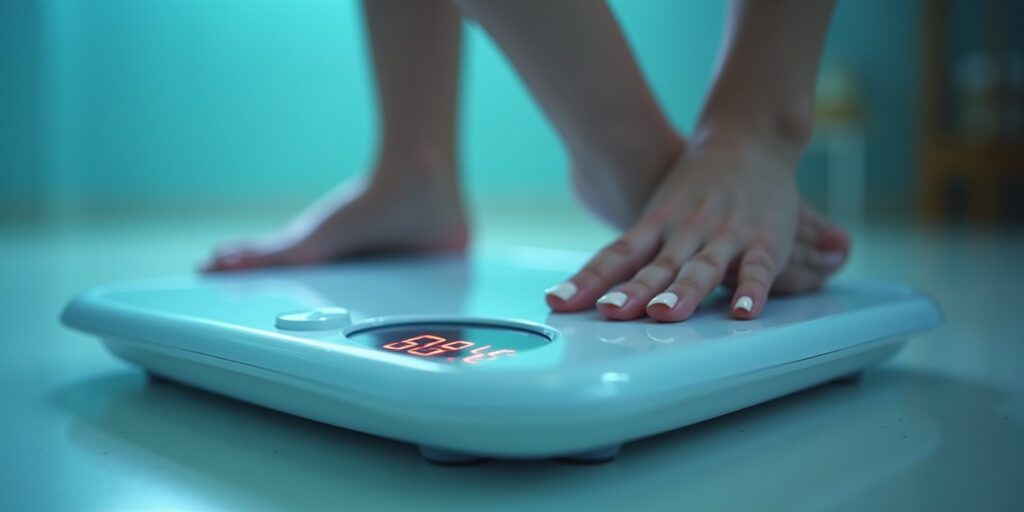If you’ve ever stepped on the scale before your period and noticed an increase, you’re not alone. Many people ask, does your period cause you to gain weight? The answer isn’t as straightforward as you might think. While it may feel like your body is packing on extra pounds, what you’re experiencing is usually temporary. But why does this happen? And how much weight gain is normal? Let’s break it all down.
Does Your Period Cause You to Gain Weight? The Science Explained
The short answer is yes—your period can cause you to gain weight, but it’s mostly due to water retention, hormonal fluctuations, and changes in your appetite. Studies suggest that women can gain anywhere from 1 to 5 pounds before and during their period, but this weight gain is usually temporary and disappears once menstruation ends.
Hormonal shifts are the primary reason why you might feel heavier. The key players? Estrogen and progesterone. These hormones fluctuate throughout your menstrual cycle, leading to water retention and bloating, which can make the scale tip higher.

Why Does Your Period Cause You to Gain Weight?
Let’s take a deeper look at what’s going on inside your body:
1. Water Retention and Bloating
One of the biggest reasons why your period causes you to gain weight is water retention. Estrogen and progesterone influence your body’s ability to regulate fluids. When progesterone levels drop right before your period, your body tends to hold on to more water, making you feel puffy and swollen.
A study published in the Journalfound that water retention peaks just before menstruation and subsides a few days after the period starts. This means that the weight gain you experience is temporary and not actual fat gain.
2. Increased Appetite and Food Cravings
Does your period cause you to gain weight by making you eat more? It sure can! Many people experience intense cravings for salty, sweet, or high-carb foods before their period. This is because progesterone increases your appetite, and serotonin (the “feel-good” neurotransmitter) drops, leading to cravings for comfort foods.
A study found that women consume about 200-500 extra calories per day in the days leading up to their period. If you consistently eat more than your body needs, those extra calories can contribute to actual weight gain over time.
3. Digestive Changes
Hormonal changes before and during your period can affect your digestion. Some people experience constipation before their period due to increased progesterone, while others deal with diarrhea once their period starts. These shifts in digestion can also contribute to temporary weight changes.
Does Your Period Cause You to Gain Weight Permanently?
The good news? No, period-related weight gain is not permanent. Most of the weight you gain is due to water retention and bloating, which usually resolves within a few days after your period starts. However, if your period cravings lead to excessive eating and you don’t compensate with exercise or a healthy diet, you could gain actual body fat over time.

How to Reduce Period-Related Weight Gain?
Even though period weight gain is temporary, it can still be uncomfortable. Here are some ways to minimize bloating and water retention:
1. Stay Hydrated
It may sound counterintuitive, but drinking more water helps flush out excess fluids and reduces bloating. Aim for at least 8-10 glasses of water per day to keep your system running smoothly.
2. Reduce Salt and Processed Foods
Salty foods cause your body to retain more water, making bloating worse. Try to limit processed foods and opt for potassium-rich foods like bananas, avocados, and leafy greens to help balance fluid levels.
3. Exercise Regularly
Does your period cause you to gain weight and make you feel sluggish? Combat this by staying active! Light exercises like yoga, walking, and stretching can help reduce water retention and improve circulation.
4. Get Enough Magnesium and Vitamin B6
Studies suggest that magnesium and vitamin B6 help reduce bloating and water retention. Foods like nuts, seeds, dark chocolate, and leafy greens are great sources of these nutrients.
5. Manage Cravings Mindfully
Instead of reaching for high-sugar snacks, try healthier alternatives like fruit, nuts, yogurt, or dark chocolate. Balancing protein and healthy fats can also help keep your blood sugar stable and reduce cravings.
Does Your Period Cause You to Gain Weight?
So, does your period cause you to gain weight? The answer is yes—but mainly due to temporary water retention, bloating, and hormonal shifts. The good news is that this weight gain isn’t permanent and typically disappears within a few days after your period starts.
Understanding the science behind period-related weight gain can help you feel more in control of your body. By staying hydrated, eating a balanced diet, and moving regularly, you can minimize discomfort and maintain a healthy lifestyle throughout your cycle.
If you ever feel concerned about persistent weight gain or significant period-related symptoms, it’s always a good idea to consult a healthcare provider. Remember, your body is doing incredible things every month—so give yourself some grace and self-care along the way!
Q1: How much weight gain is normal during your period?
A: Most women experience a temporary weight gain of 1 to 5 pounds due to water retention, bloating, and increased appetite.
Q2: Does drinking water help reduce period weight gain?
A: Yes! Staying hydrated helps flush out excess fluids and reduces bloating.
Q3: Does your period cause you to gain weight every month?
A: It depends on your body, diet, and hormonal balance. Some people notice weight fluctuations every cycle, while others experience minimal changes.
Q4: Can I lose weight while on my period?
A: Yes, but your body naturally holds onto more water during this time, so you may not see immediate results. Focus on healthy habits rather than the number on the scale.
























